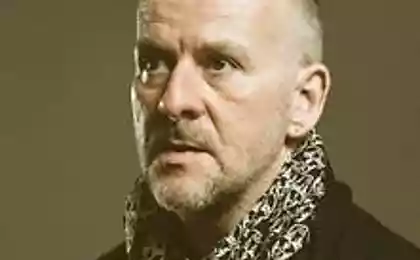535
The 10 most honest politicians and statesmen in history
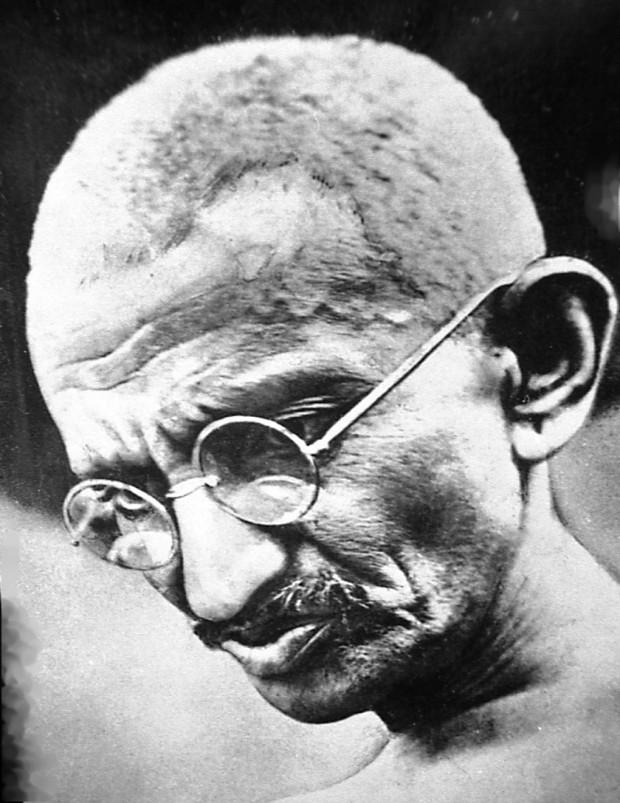
Every day from all over the world come reports of certain erring politicians and officials. The impression is that when people find themselves in the state apparatus, then you automatically become a liar, greedy and corrupt, and perhaps it is these qualities that enable them to achieve career heights?
So, anyway, the history (and present) known cases of selfless service to the interests of the country and society on responsible state posts, what gives us hope — despite the existing problems and replaced vserazedayuschey corruption in the system is honest and principled politicians, your attention — best of the best.
1. Aristides (C. 530 — 467 BC)
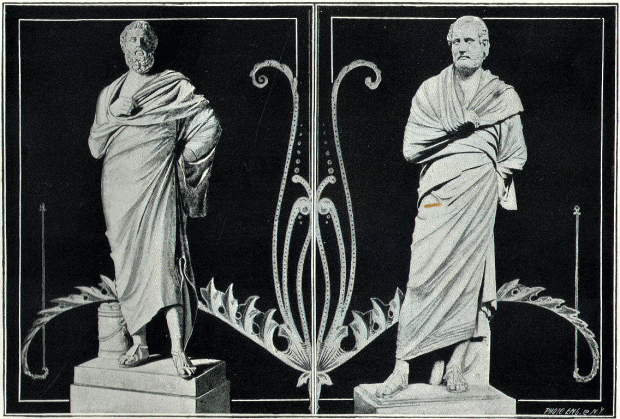
Aristides, the Athenian statesman and commander, knowingly received from his contemporaries the nickname of "Fair" — this was a man of unswerving integrity and high moral principles.
Exceptional human qualities Aristide was noted by Herodotus:
"That Aristide, I think, judging by what is learned about his character, the most noble and just man in Athens".
As written by Plutarch, one popular Assembly of Athens decided to hold among the inhabitants the vote of the politicians have too much influence, and those who receive more than 6 thousand votes, was supposed to expel from the city, to prevent tyranny.
Residents wrote the names of clay shards and gave them to officials. One illiterate farmer came to politics, was asked to write on the plate the name of "Aristides" (he didn't know his face), and when Aristide asked, not offended if its something this person, the farmer said, "No, I don't even know who it is. Just tired of hearing at every corner: "the Fair! Fair!"". Aristides wrote his name and silently returned the plate.
Aristide has always followed his principles and was one of the few politicians who even in the last days of life has not lost the confidence of the Athenian people. He died in 467, the year BC and was buried at public expense.
2. Quincy Lucius Cincinnatus (519 approx. approx. 439 BC)
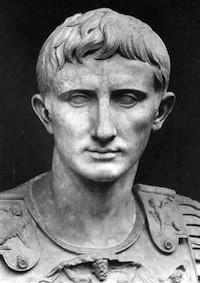
Roman patrician and politician Lucius Cincinnatus Quincy distinguished by the fact that twice became the dictator of Rome to save the Empire, located on the edge of destruction. The first time it happened in 458, the year BC, when the Eternal City was threatened by the tribes ekwow and Wolski, and the second time happened in 439, the year BC — the Senate has asked Cincinnati to crush the rebellion of the plebeians.
Any other politician in his place immediately would take a chance to become the sole ruler of the most powerful (at the time) state on Earth, but Lucius went to the office as soon as the danger has been eliminated. Is phenomenal (especially among public figures) generosity made him a model of simplicity and virtue.
Cincinnatus led a very modest life, lived in a small Villa and almost all free time to devote to the work and cultivation of land, therefore, in many paintings he is depicted dressed in peasant clothes and with the agricultural instrument in his hands. One of the most respected Roman historians Livy wrote of him: "Cincinnatus called from the plow".
Interestingly, the follower and guide views Lucius think of George Washington, immediately after the US victory in the War of independence went to his native estate and continued to live a normal life. Six years later he became the first President of the United States, and when he served in the post for two consecutive terms, was back again. By the way, Washington was also Chairman of the Society of the Cincinnati, of which he was the officers of the army of the United States. Guess in honour of whom the company has received such a name?
3. Marcus Aurelius (121 — 180)
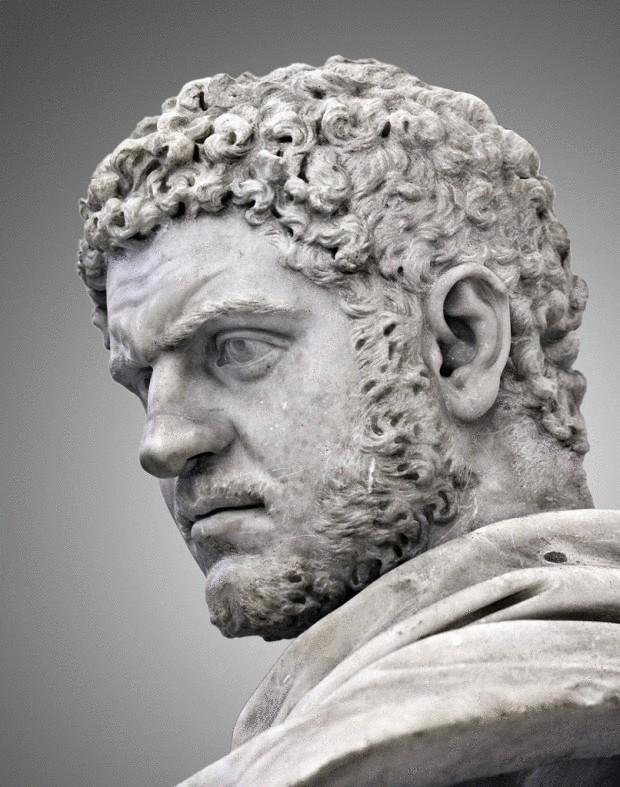
Philosopher at the head of the Empire — perhaps the most rare in history. Marcus Aurelius was the last of the so-called five good emperors — Caesars of Rome, whose reigns were characterized by stability and sound domestic and foreign policy, which allowed the Roman Empire in the years to reach its peak.
Marcus Aurelius is also known as one of the prominent representatives of the philosophy of stoicism, according to which the sins and immoral acts destroy a person, so as not to lose the human essence, it is necessary to develop their moral and mental qualities. According to the Stoics, the good deeds and the rejection of all the frills — the key to the happiness of man.
As for Marcus Aurelius, his works have become classics of late stoicism, as he talked about him historian Herodian:
"Aurelius has proven their views not only in words and not as a philosophical formula, and their human qualities and an impeccable lifestyle."
Marcus Aurelius died in 180, the year of the plague during the military campaign against the Germans, although in some feature films ("the Fall of the Roman Empire" 1964 year, "Gladiator" 2000) voiced a different version. He allegedly was poisoned because he was going to hand power over Rome adopted son, a Roman General, bypassing his own son Commodus, who, according to Aurelius, did not fit the role of the Emperor, as he was a libertine and a vain psychopath.
4. George Washington (1732 — 1799)
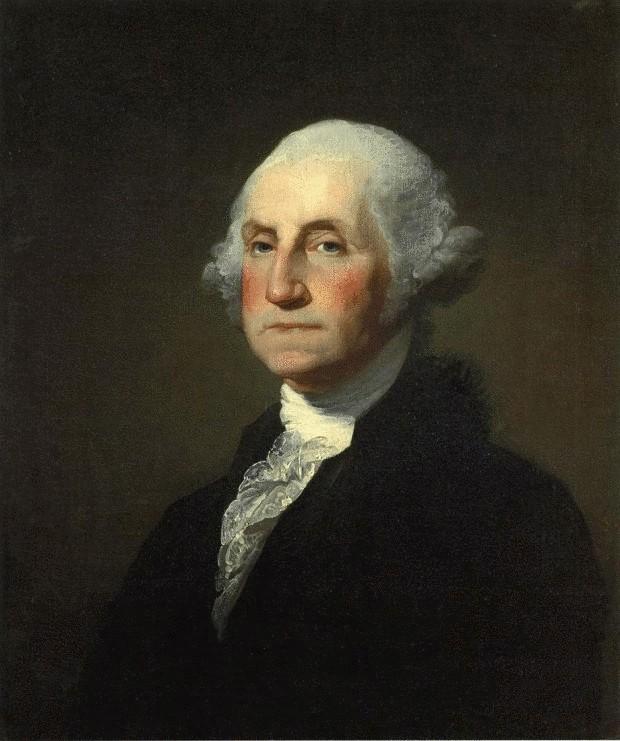
One of the most famous figures in American history, George Washington has long become downright legendary figure. He presided over the Convention, on which was written the first Constitution of the United States, held the post of commander-in-chief of the Continental army, and created the institution of the presidency of the United States.
British king George III once called him "the greatest character of the age", and after the death of Washington it began to put legend was even the attempts at deification, as in the famous painting, located in the dome of the Capitol. Fresco called "the Apotheosis of Washington" depicts the first U.S. President surrounded by a whole host of the Olympian gods, and Shinto temples in Hawaii to Washington is worshiped as one of the deities.
As stated in some of the legends, as a child, when the father asked little George, who chopped down the cherry tree, the boy was frightened, but he couldn't lie and admitted that it was his handiwork. This story is often cited as proof of honesty of Washington, and the phrase "I can't lie" became one of the "visiting cards" of the first American President. However, the story is in no way confirmed, so it's probably just a tribute to the man of exceptional integrity and so no doubt without any cherry trees.
When Washington departed to the other world, Continental army General Henry Lee said of him: "First in war, first in peace and first in the hearts of citizens", as Napoleon Bonaparte had said to the French speech in honor of the deceased and declared France a 10-day mourning.
5. Abraham Lincoln (1809 — 1865)
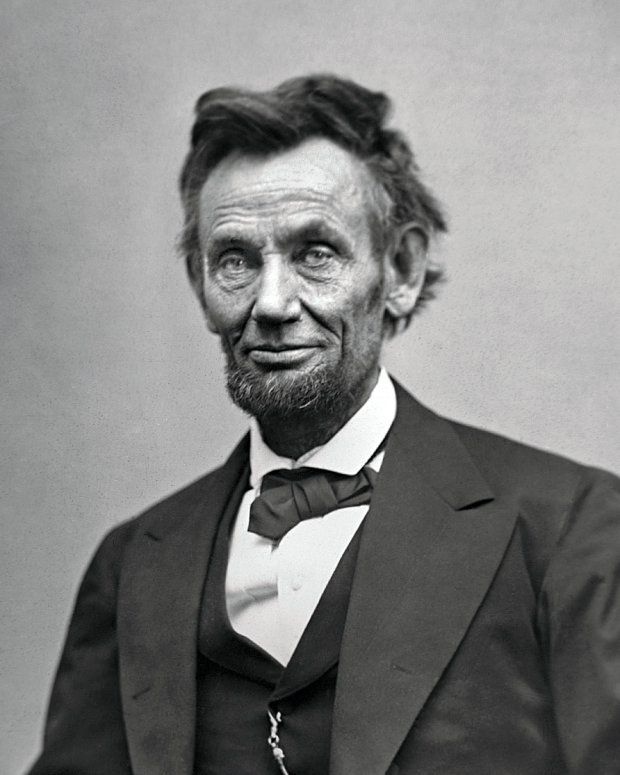
The presidency of Lincoln had not the easiest time in U.S. history, but he passed that test with honor. The 16th President of the United States held the country through the Civil war (the war between the North and South), abolished slavery and helped to smooth over disagreements in the us government. Abraham Lincoln built (not personally, obviously) the transcontinental railroad, and began a large-scale reorganization of the economy after his death, the US has become the fastest growing country in the world.
Whole world was shocked by his death: five days after the end of the Civil war, April 14, 1865, the year in "Ford's Theater" (Washington) Lincoln watched the play "My American cousin" when John Wilkes Booth, a supporter of the defeated southerners, broke into the presidential box and shot Lincoln in the head. The next day the President died, without regaining consciousness.
At home the 16th President immortalized in numerous monuments (including the famous mount Rushmore national memorial), he is depicted on the coin of 1 cent and a 5-dollar bill, and his birthday (March 4) became an official holiday in several States.
6. William Gladstone (1809 — 1898)
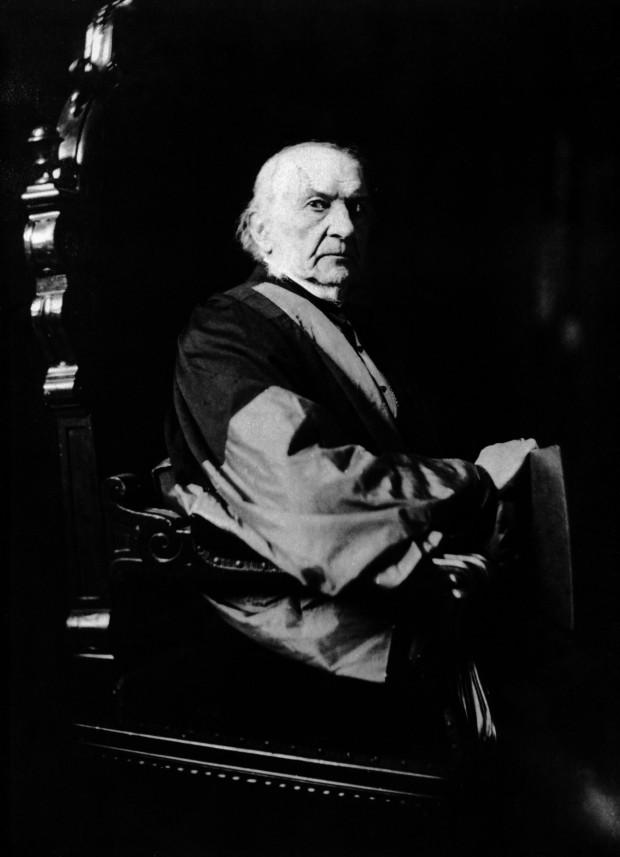
The fate of William Gladstone, British politician, is unique: he four times became the Prime Minister of the United Kingdom and has proven itself on this post.
Among his political achievements — the abolition of the state Church in Ireland, the introduction of secret voting in the elections, two legislative acts expanding the rights of Irish peasants, and other constant concern about the cultural life of the country and the interests of ordinary people. William Gladstone not so bright appeared in international politics, but only because he was an opponent of all sorts of wars and violence that flourished at the time (and now) in the global political arena.
Possessing a brilliant mind, Gladstone paid attention to the most different areas of life of the British, for example, we know that this Victorian figure was invited to her house for tea prostitutes and engaged them in conversation, hoping to rehabilitate "wayward women". Contemporaries noted in him high moral values, justice and humanity. The best proof of these qualities are the numerous monuments to Gladstone, as well as the streets and small towns named after him.
7. Mahatma Gandhi (1869 — 1948)
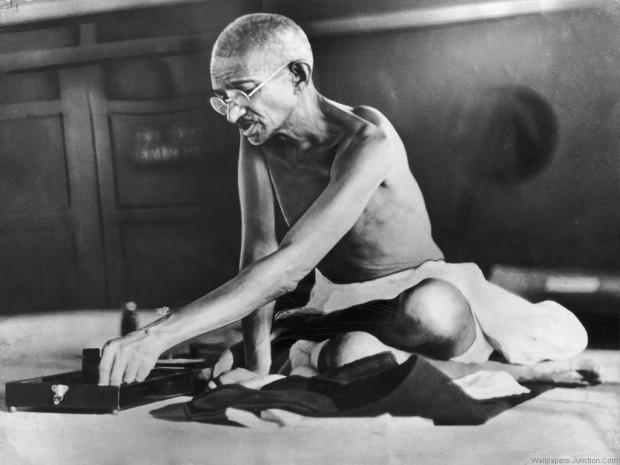
"Great soul" — as translated from the dialect of devangari the title "Mahatma" which has been awarded to Mohandas Gandhi, the poet Rabindranath Tagore, and Gandhi himself from this nickname repudiate, considering himself unworthy of it.
Gandhi became famous as a principled opponent of the caste-based inequality, which led a merciless (but peaceful) struggle, and a supporter of the ideas of non-violence (the so-called Satyagraha — translated from Sanskrit, "the pursuit of truth, perseverance in truth"), his political and social activities had a huge impact on the development of India and the reconciliation of warring factions of Hindus and Muslims.
In 1921, the year Gandhi headed the Indian national Congress and on this post worked tirelessly for the benefit of the Indian people. The main concerns were: the advancement of women in the country, raising the living standards of the poorest segments of the population, resolving ethnic and religious conflicts, economic development and, of course, the liberation of India from British oppression.
He shared lunch with the untouchables, went to the carriages of the third class, went on hunger strikes and organized actions of non-violent resistance and boycott of British goods, and before his death was working on a project of the Indian Constitution.
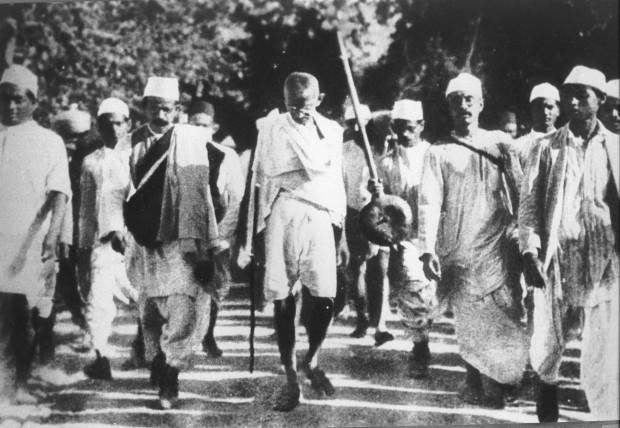
As the inspiration and symbol of the movement for India's independence, Mahatma Gandhi fell victim to political intrigue: on 30 January 1948, the year Gandhi with his niece went out on the front lawn for the usual evening prayer. He was welcomed by a crowd of fans and supporters, but all of a sudden from the mass of admirers separated man who approached Gandhi and fired three shots at close range. Bleeding politician motioned that he forgives the shooter and died. It was later revealed that the killer was a member of a religious-political organization "Hindu Maha Sabha", who believed that Gandhi was too good to Indian Muslims.
The birthday of Gandhi, October 2, is celebrated worldwide as international day of non-violence.
8. Ernest VanDiver (1918 — 2005)
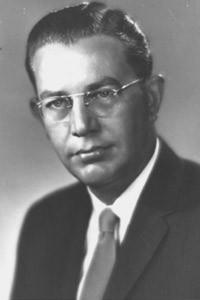
XX-th century has largely been a century of struggle for civil rights by various human rights organizations and prominent leaders, including, for example, the notorious Maritn Luther king.
However, there are other, less known figures who also contributed greatly to the development of civil society, for example, Ernest VanDiver, who served as Governor of the U.S. state of Georgia from 1959 to 1963 year.
VanDiver tried to eradicate discrimination based on race, which at the time was rare for governors, most of whom were thoroughly corrupt racists. For example, VanDiver upheld the decision of the state to take training at the University of Georgia to two black students — Hamilton Holmes and Sharleen hunter, although earlier students of the University rioted against the presence of blacks in the classroom.
In addition, VanDiver reversed the decision of the General Assembly of Georgia prohibiting public funding of schools, where they trained boys and girls.
A state judge in Georgia Joseph Quillian praised the activities of Ernest VanDiver as Governor:
"This man never learned to lie".
9. Vaclav Havel (1936 — 2011)
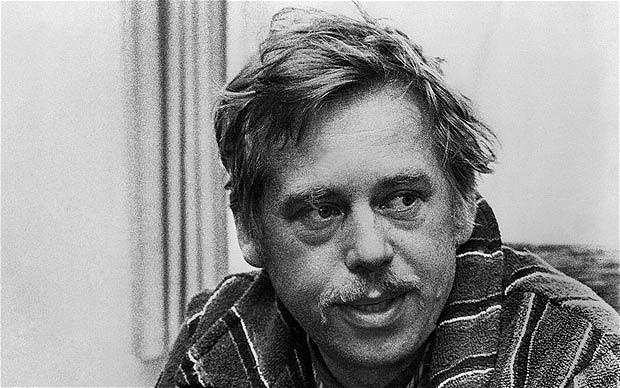
Vaclav Havel, no doubt, possessed literary talent, he wrote poems, essays and plays, but went down in history primarily as a dissident and political activist.
His political path has been long and tortuous: he was an active opponent of the Soviet invasion of Czechoslovakia in 1968 year, which had a lot of problems — it was not allowed out of the country, and the works of Havel was banned.
For many years he led the fight for democratization of the political system and the rights of citizens of their country, repeatedly jailed, but stubbornly continued its activities.
In the fall of 1989, the year Czechoslovakia began the famous Velvet revolution, one of whose leaders quickly became václav Havel. After the Communists lost much of its political influence, former dissident was elected President, however, stayed in the post until 1992, the year, ahead of his left, believing that the days of Czechoslovakia, as a state, are numbered. But in 1993, the year he was elected again, becoming, thus, the last President of Czechoslovakia and first of Czech Republic, and in 1998, the year he was elected for a second term.
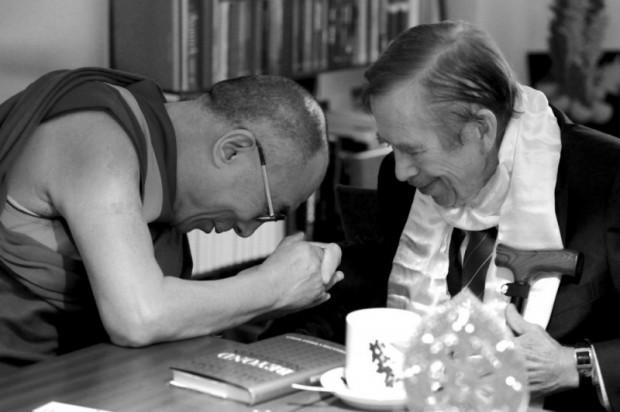
The activities of the václav Havel received the widest international recognition and support, he is the recipient of numerous awards and winner of several awards.
Symbolic was his debut as a Director: in 2011-m to year the picture of "Care" was first presented to the public at the Moscow International film festival, and in the same year, Vaclav Havel died.
10. Aung San Suu Kyi (b. in 1945-m to year)
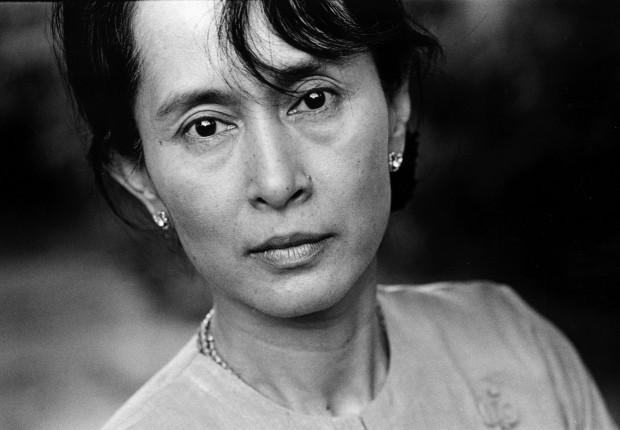
One of the brightest women in the modern political arena, Aung San Suu Kyi from 1989 to 2010 year was under house arrest a total of more than 15 years on various charges, but in General for active participation in the political life of Burma. This made her one of the symbols of the struggle for civil rights not only in this country but throughout the world.
Inspired by the ideas of Mahatma Gandhi and Martin Luther king, this brave woman in 1988, the year he founded the party "national League for democracy" to resist the military junta, which seized power in Burma after the resignation of General ne win, head of the "Burmese socialist Party program".
In 1990, the year her party won 59% of the votes in the Parliament, but to lead the government Aung San Suu Kyi was not given, which canceled the results of voting and once again placed the woman under house arrest. Being at home in Yangon, Suu Kyi received the Nobel peace prize, in Oslo which came to her sons.
In 2010, the year Suu Kyi was released from house arrest, six days after the first free parliamentary elections in the country, which since 1989, the year became known as Myanmar. Something for which so long fought Suu Kyi, has finally been realized: the party was held in the Parliament, and its leader is now the Deputy chair and continues his fight for civil rights and freedom.
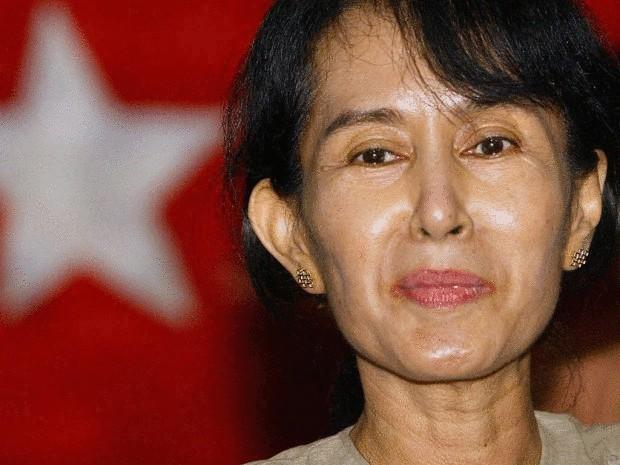
published
Source: www.publy.ru/






